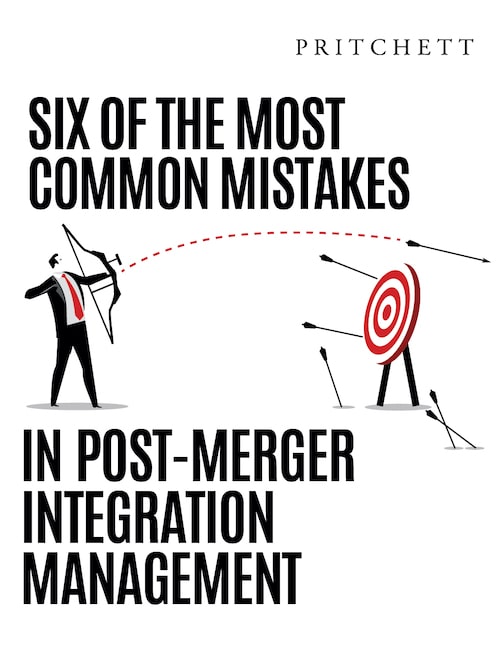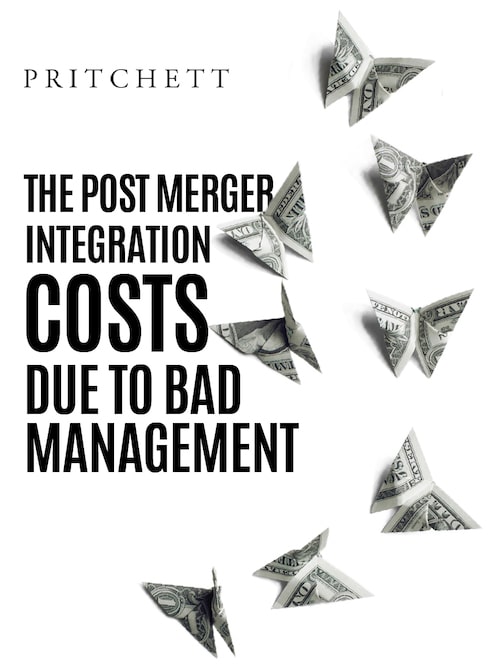A merger is based on a financial proposition, a commercial viewpoint . . . it’s not a “feel good” activity. Success is measured in numbers—dollars and cents, cash flow, net worth, stock price, market share, P/E ratio, debt figures, tax savings, and so on. It’s a very digital issue. Your job is to help play the financial angles, to help deliver a bottom line characterized by black ink and big numbers.
Particularly during the early stages of a merger it’s important to produce quick financial successes. That speaks volumes to the workforce, because for a lot of those people the jury will still be out regarding whether it’s a good merger or a bad one. If the company’s financial condition begins to deteriorate, employees typically point to that as hard evidence that something about the merger was bad to begin with or is beginning to go sour.
So when you’re weighing the alternatives in reaching your decisions, always take the financial angle into consideration. Almost always there are real dollars involved, even though that reality may not be particularly obvious.
It’s very easy for companies to spend money on programs, benefits, or organizational changes that don’t provide the appropriate payback. Also we have found that managers and executives in our client companies frequently fail to calculate the trade-offs of time for money. Part of our job is to hold people's feet to the fire so they adhere to a very tight integration time frame, because it gets very expensive when transition periods are extended. We constantly challenge recommendations and decisions where thousands . . . hundreds of thousands . . . millions of dollars are at stake, yet key managers have failed to run the numbers.
We also find that costly decisions are often made in management's attempt to generate goodwill. Companies are inclined to overspend in their attempts to buy loyalty, or to reduce feelings of guilt that stem from unpopular actions. It's much like overspending at Christmas—one or two gifts can communicate the thought, and additional presents don't necessarily provide added value.
Your employees will be just as concerned by what they perceive to be irresponsible spending during the merger as they are by harsh belt-tightening measures. They want the company to be fiscally responsible, not foolishly generous. They realize that their future is tied to the financial health of the new organization.
IT'S VERY EASY FOR COMPANIES TO SPEND MONEY ON PROGRAMS, BENEFITS, OR ORGANIZATIONAL CHANGES THAT DON'T PROVIDE THE APPROPRIATE PAYBACK.





